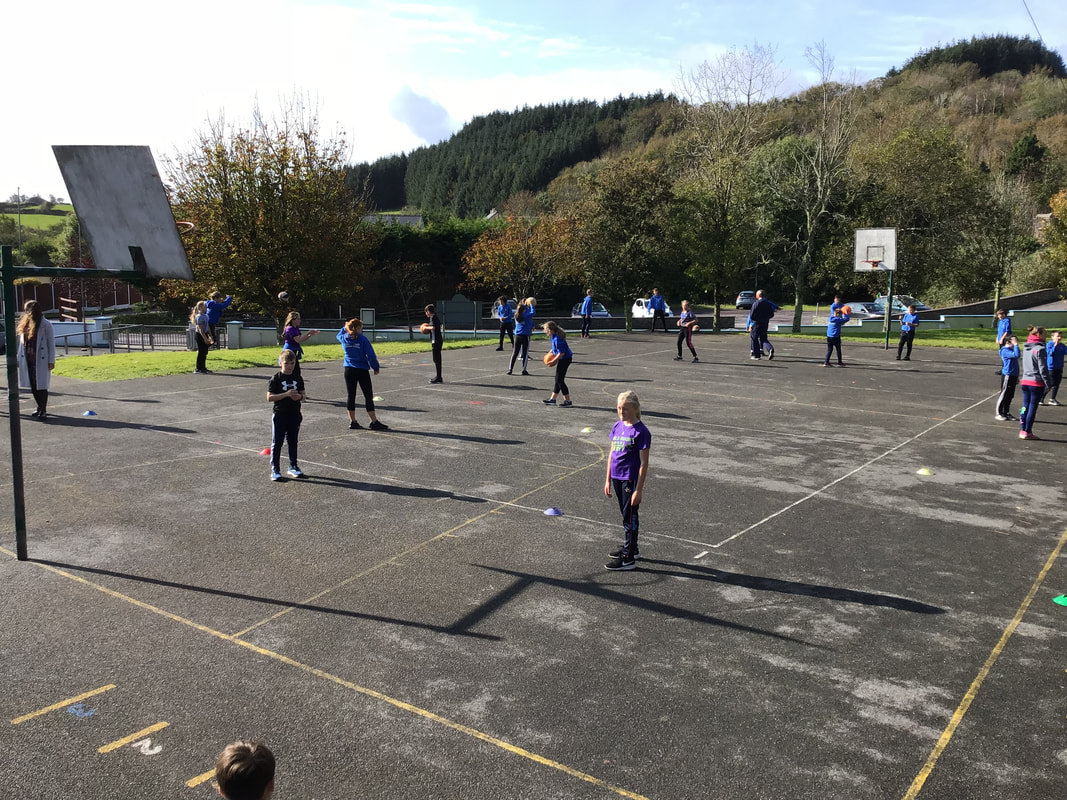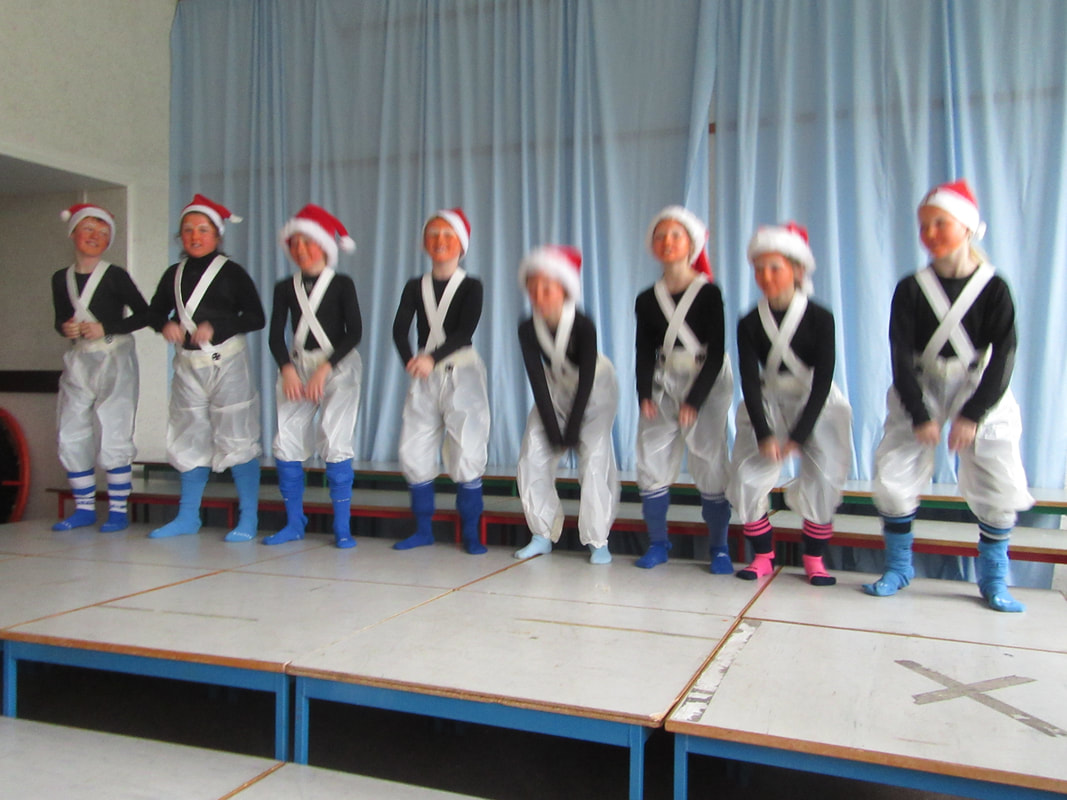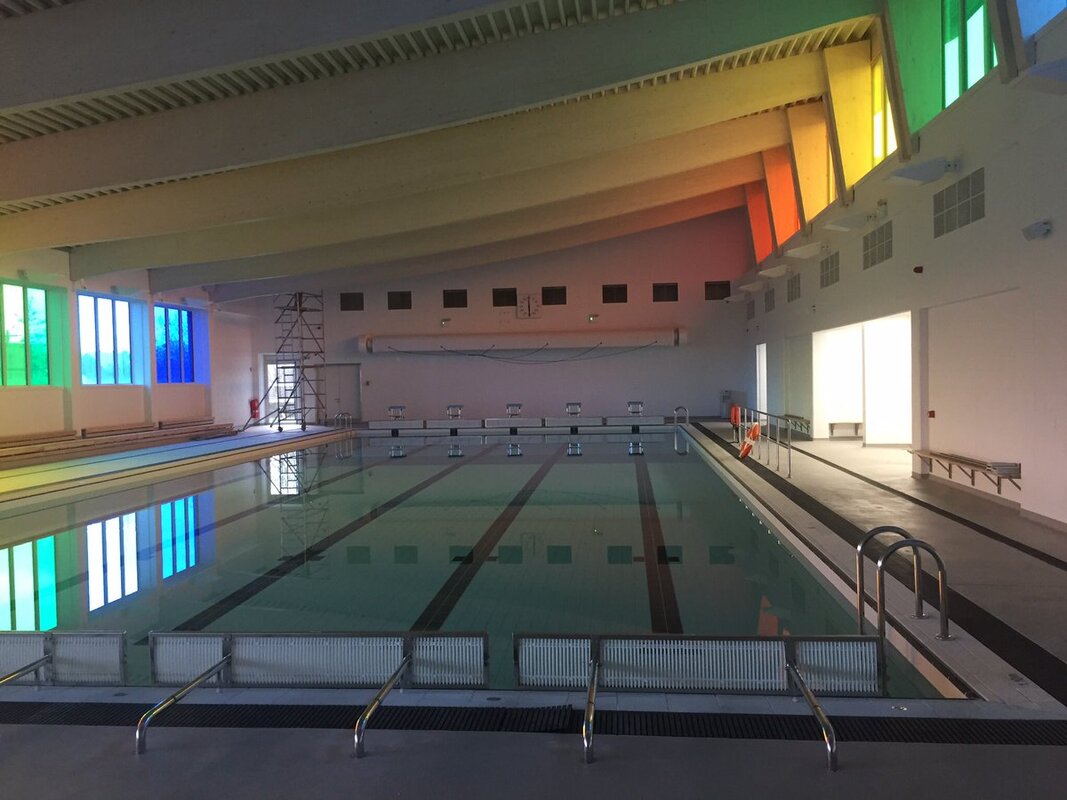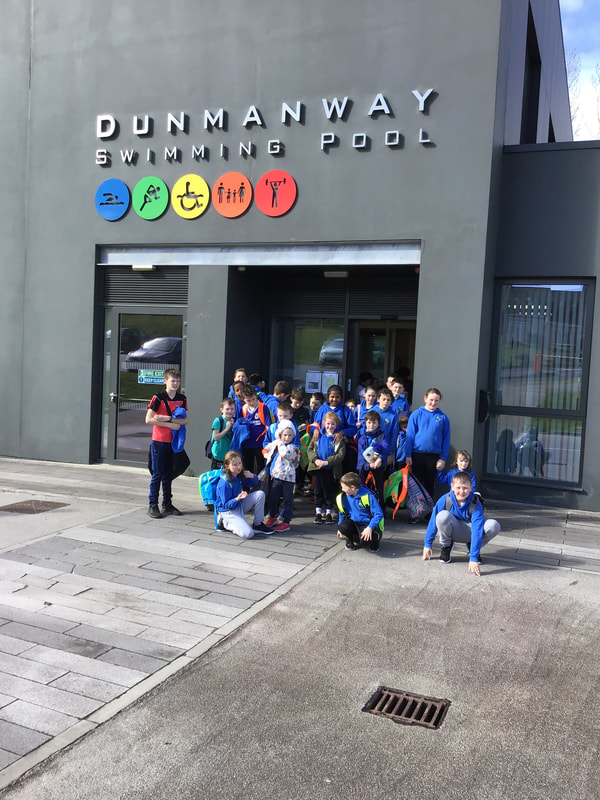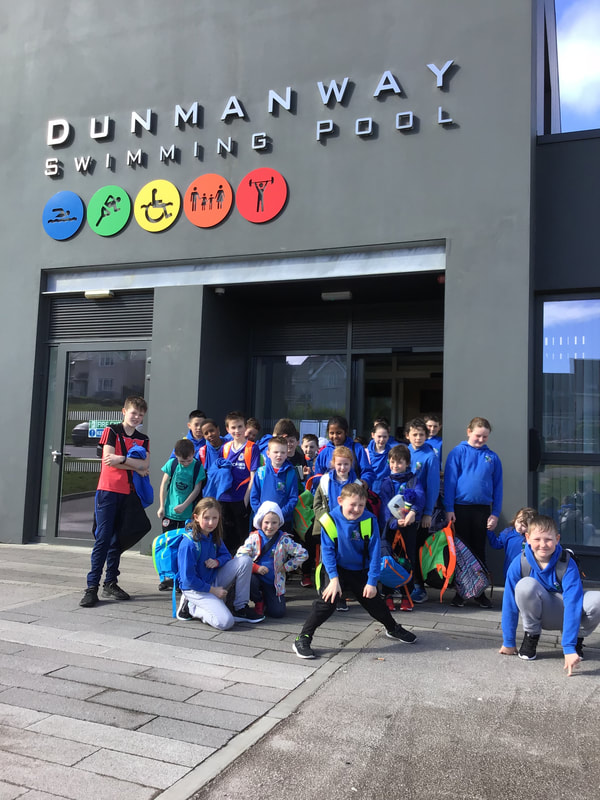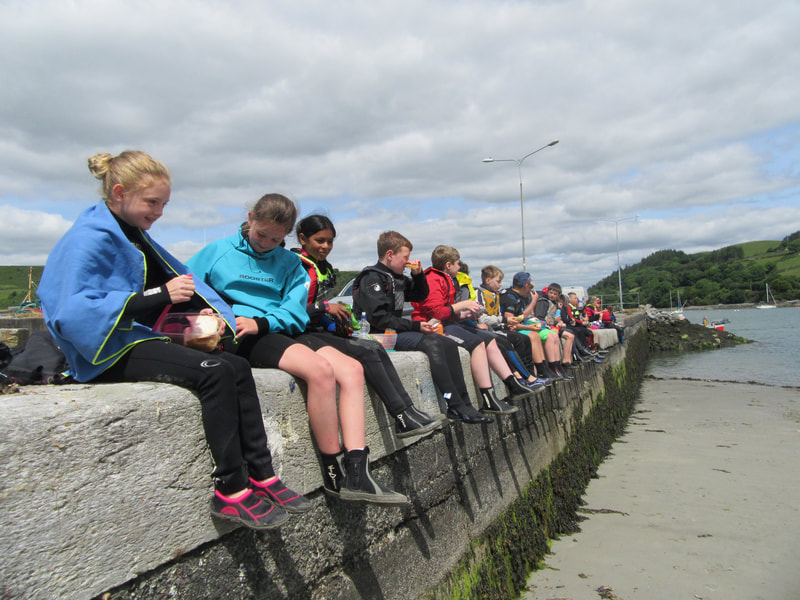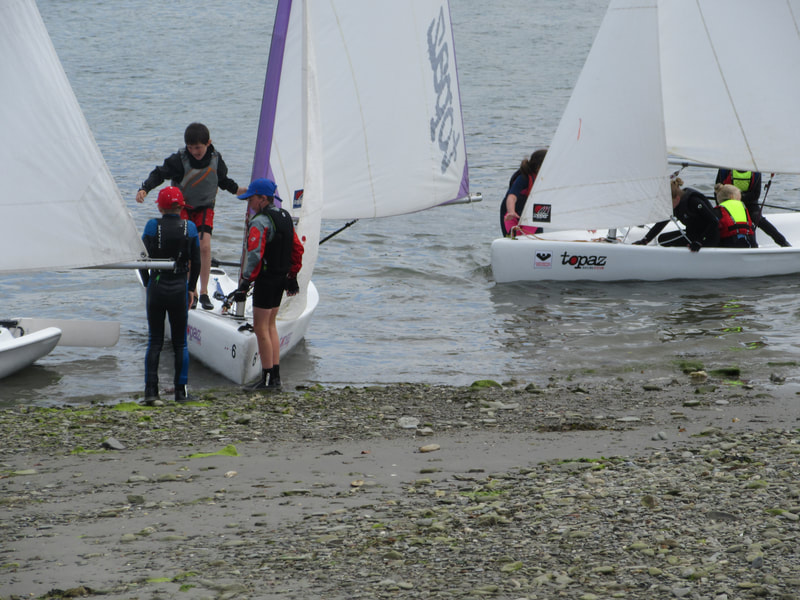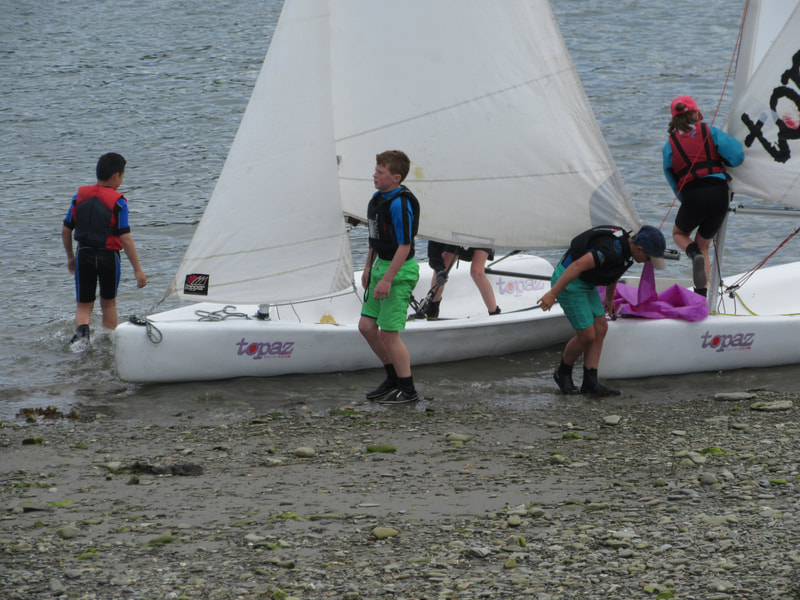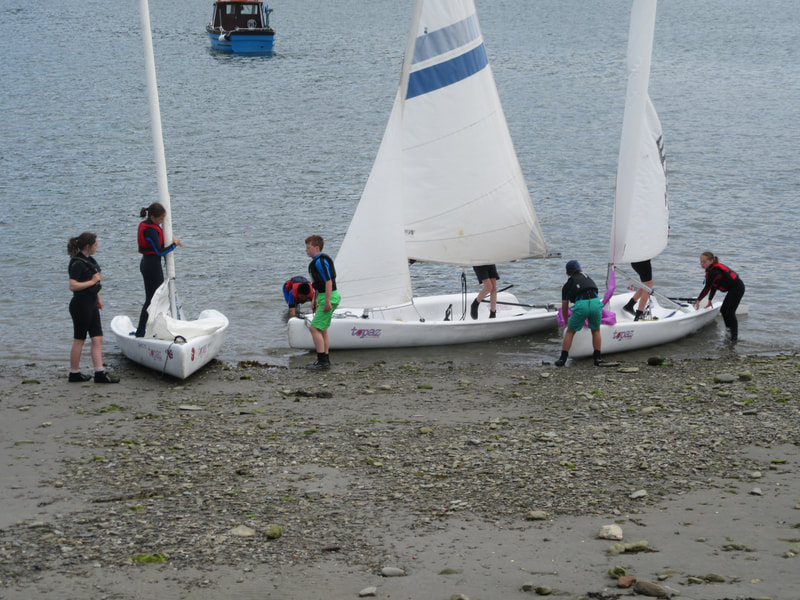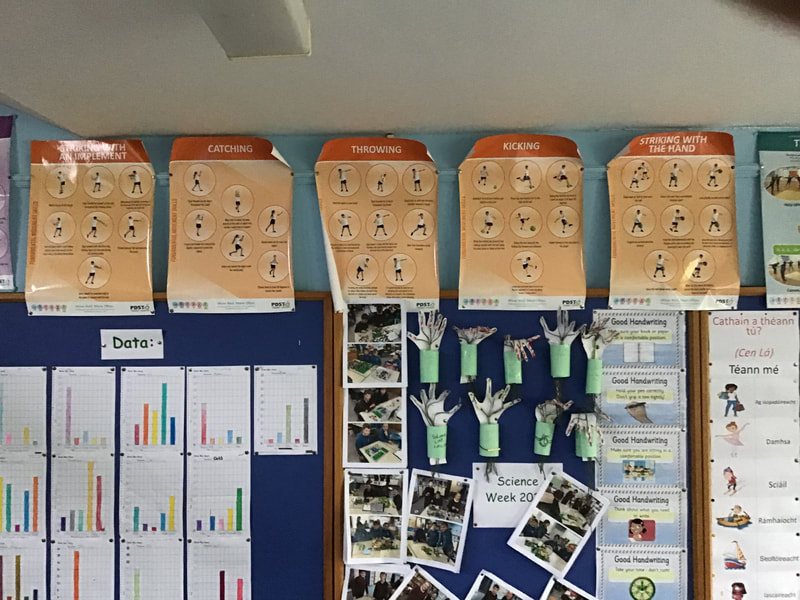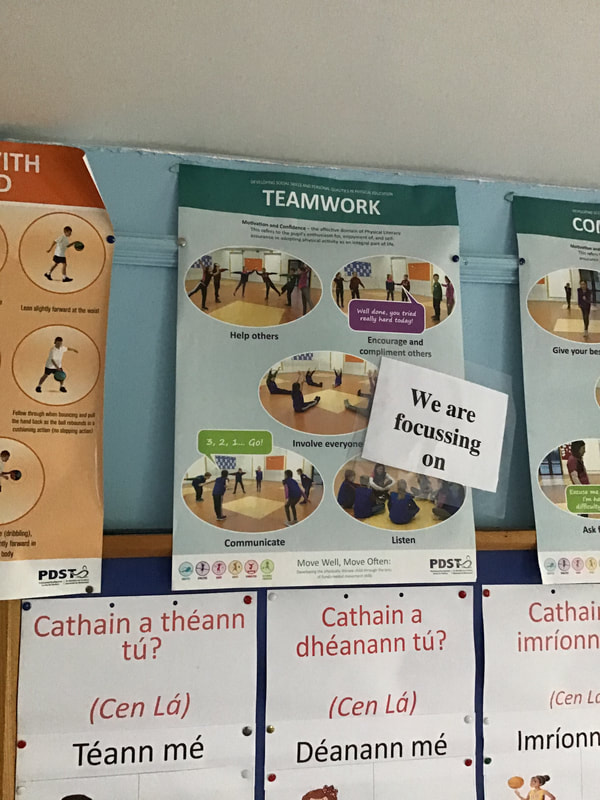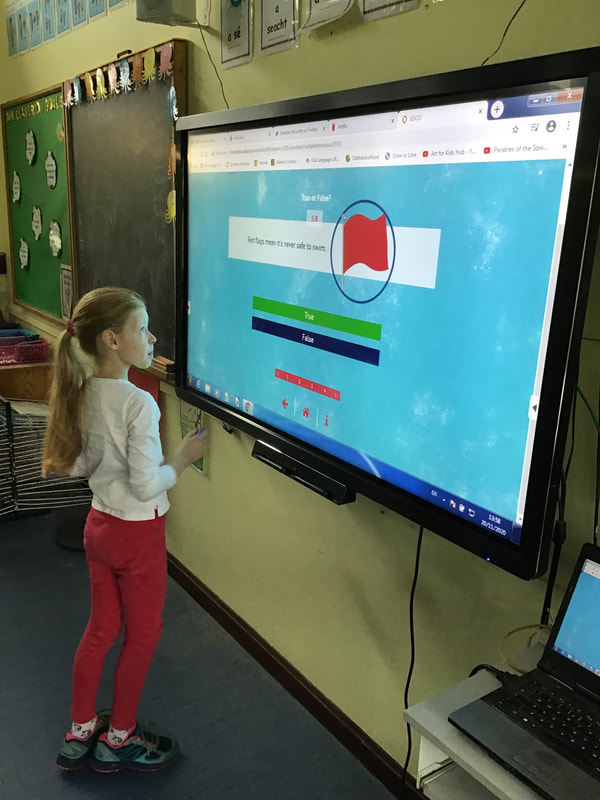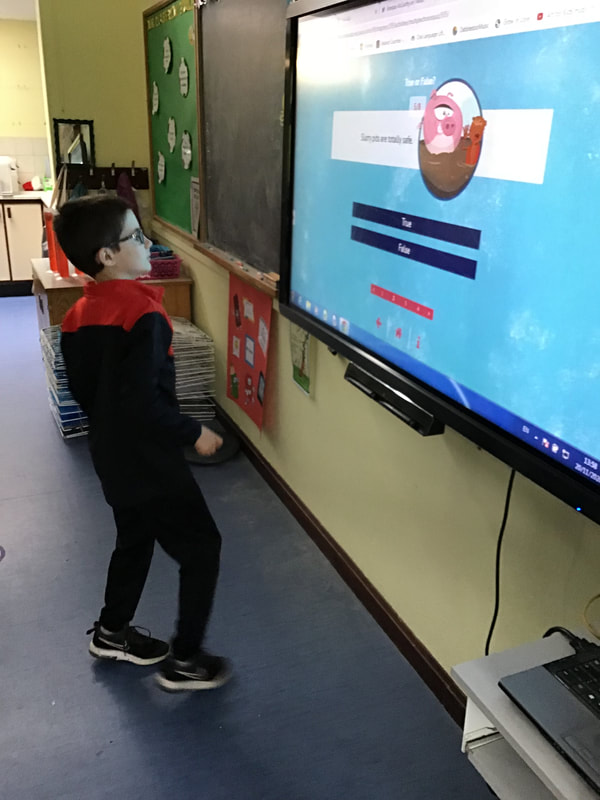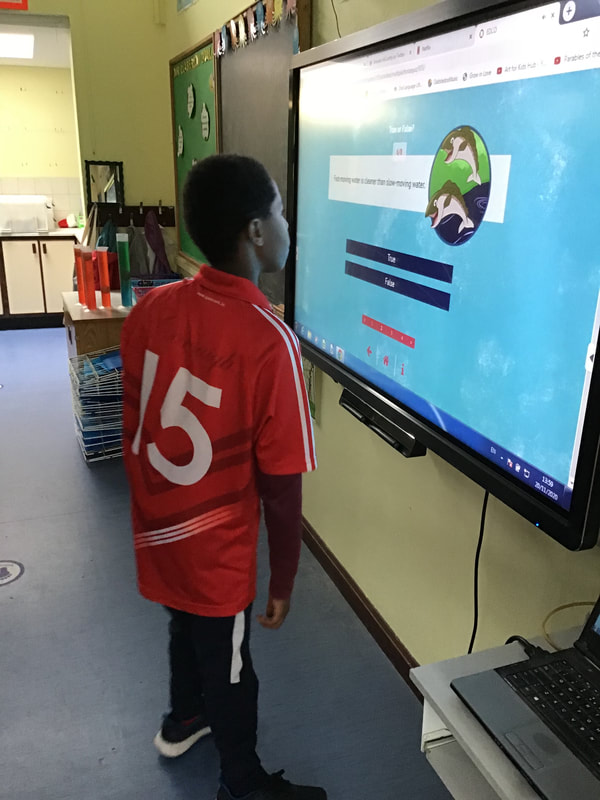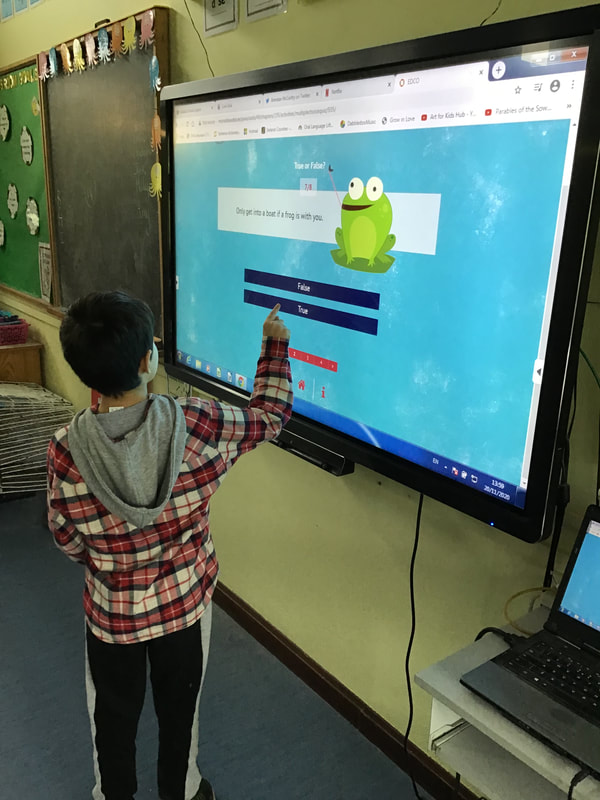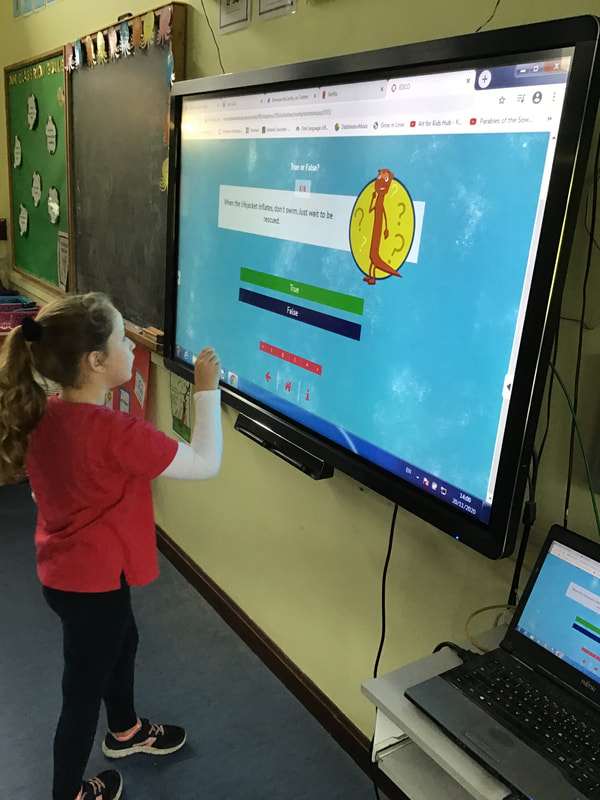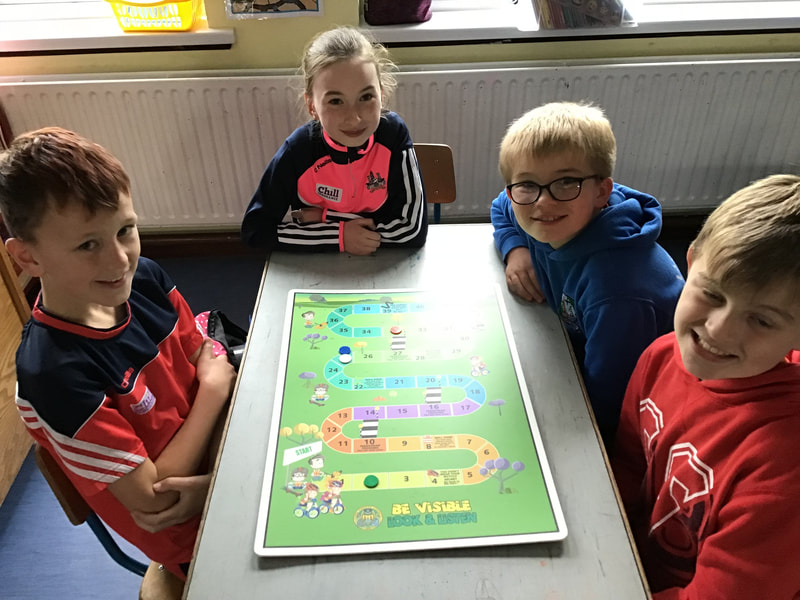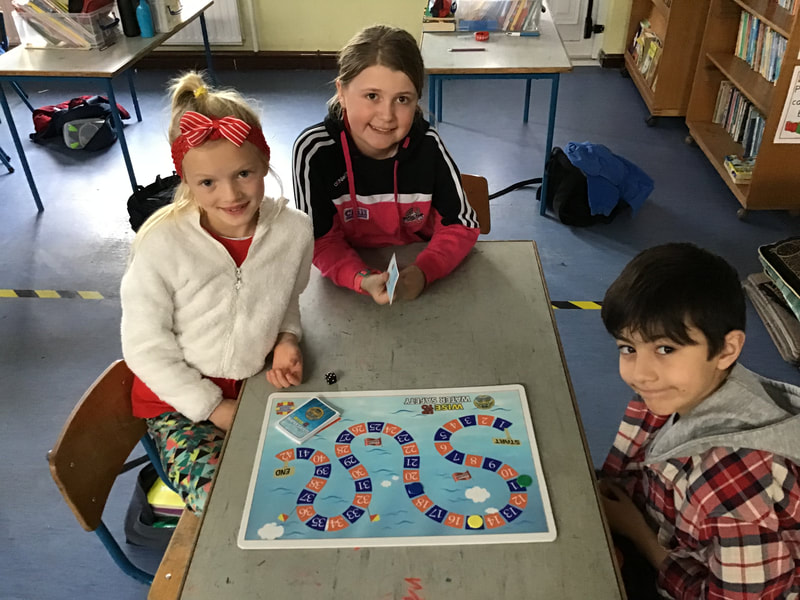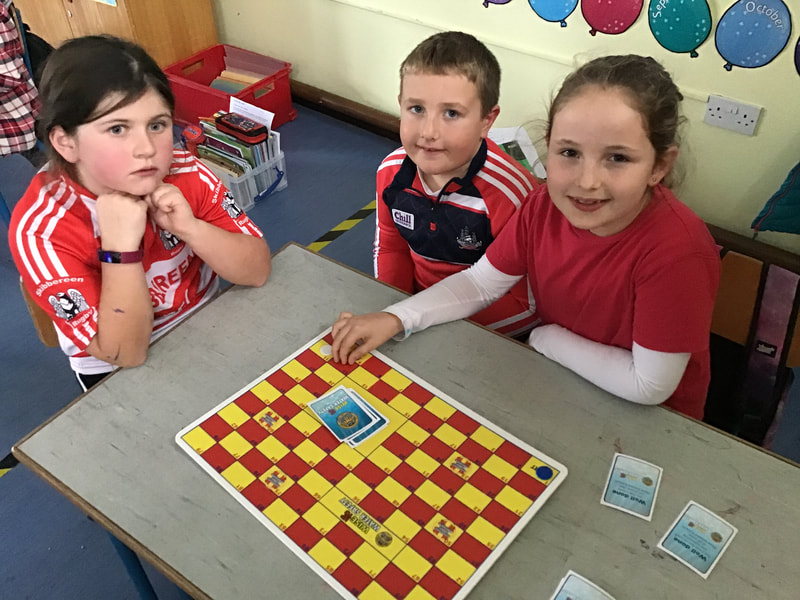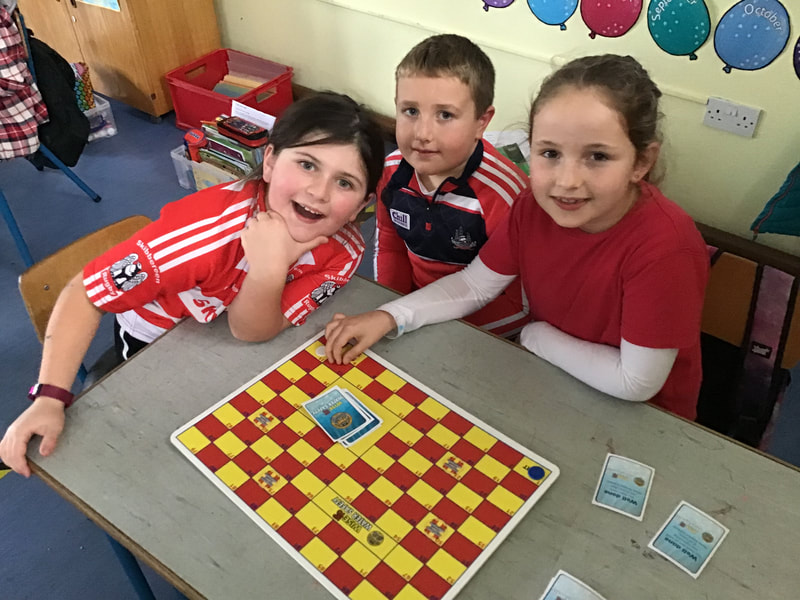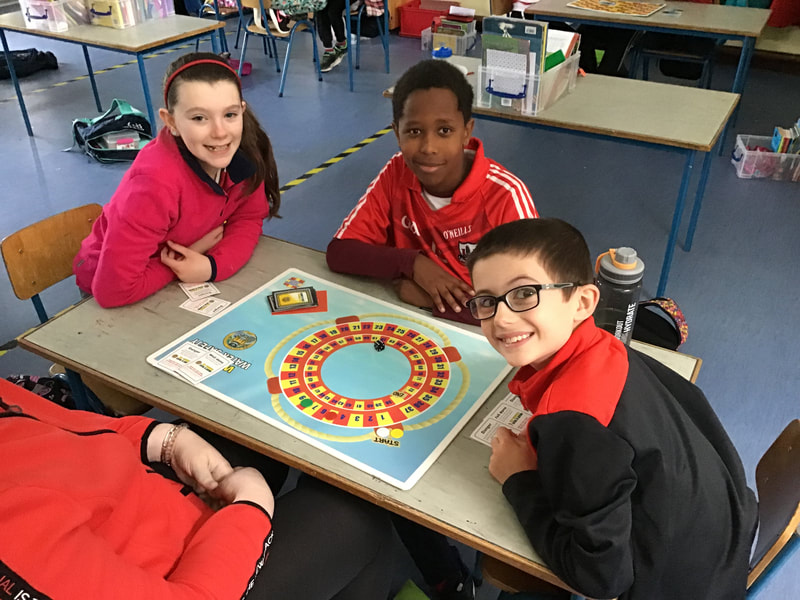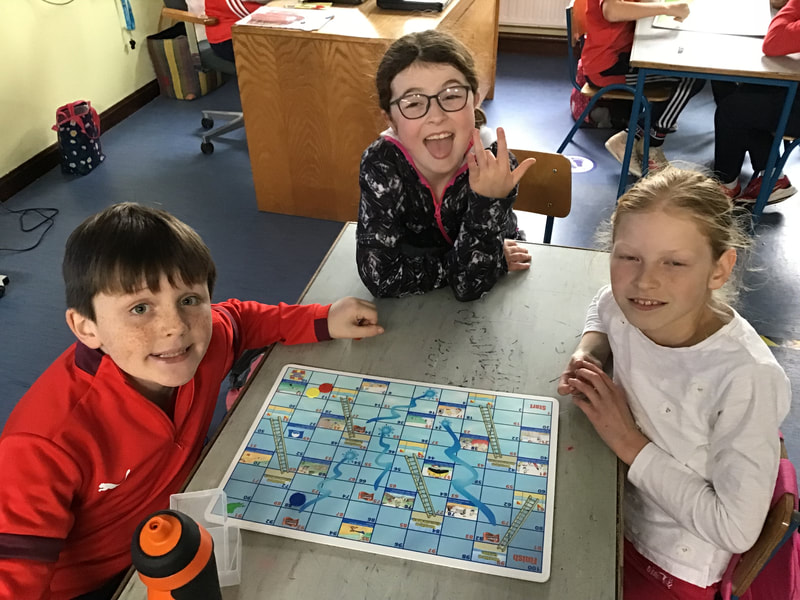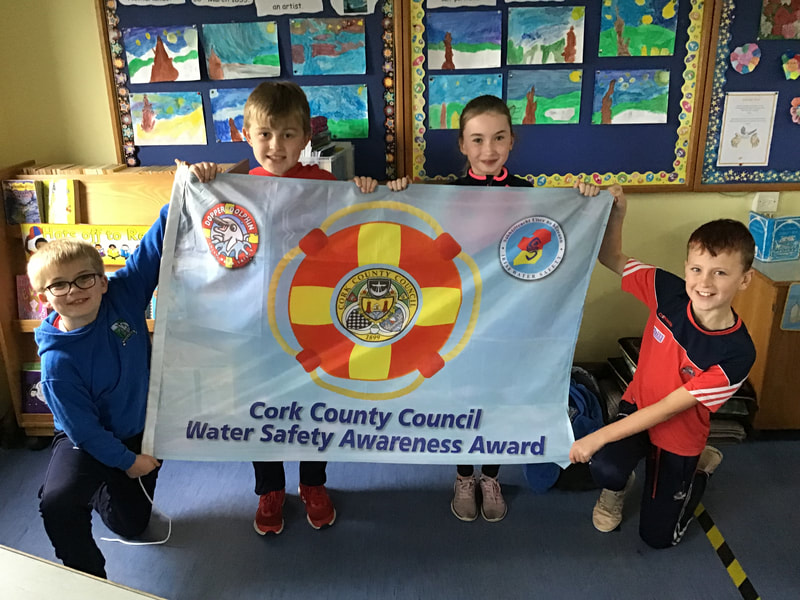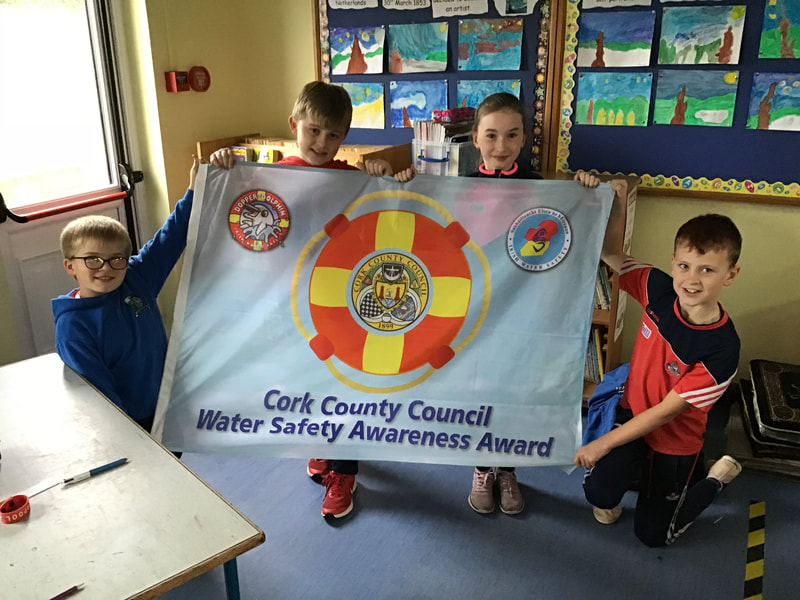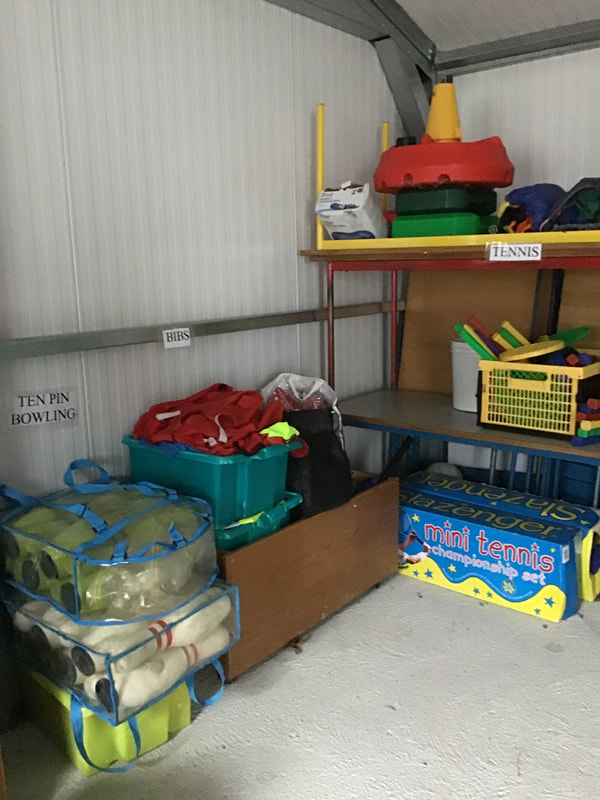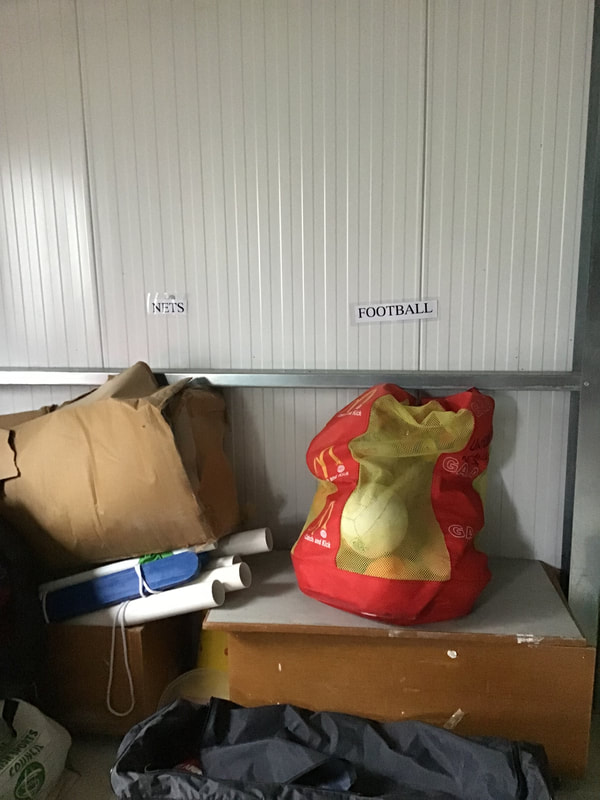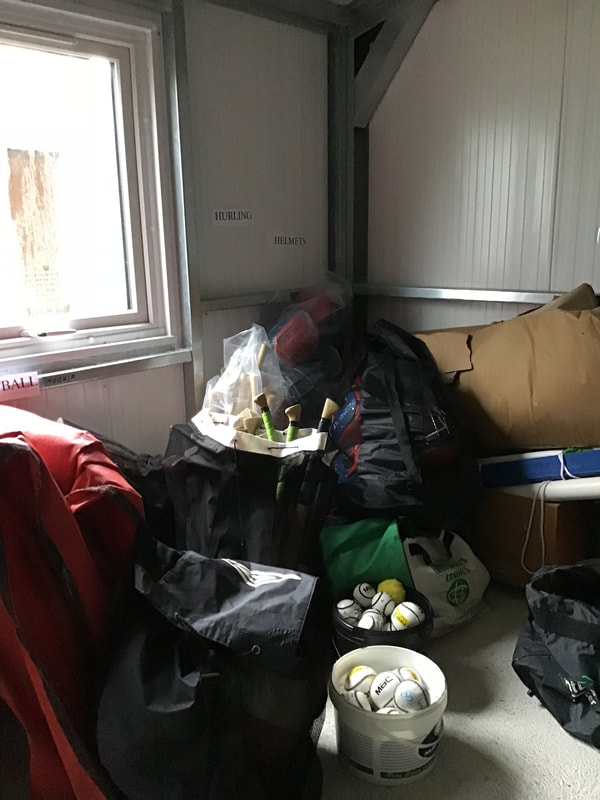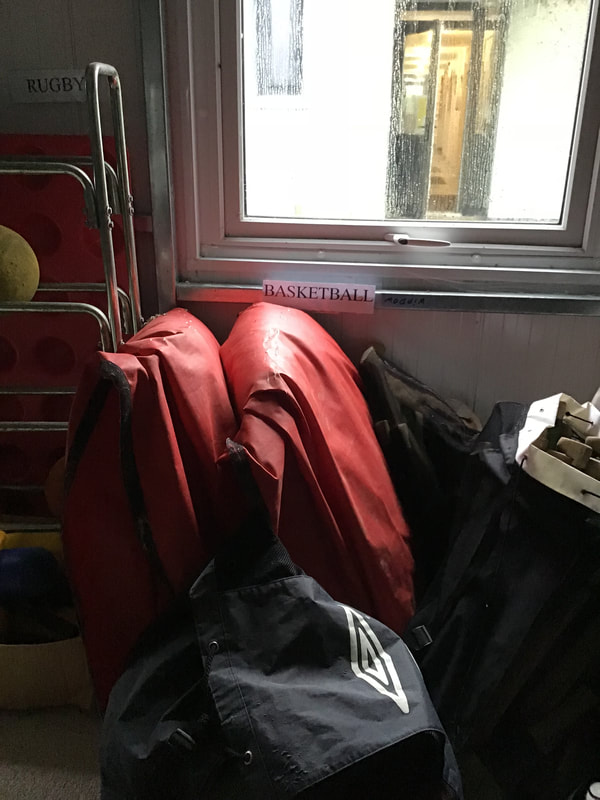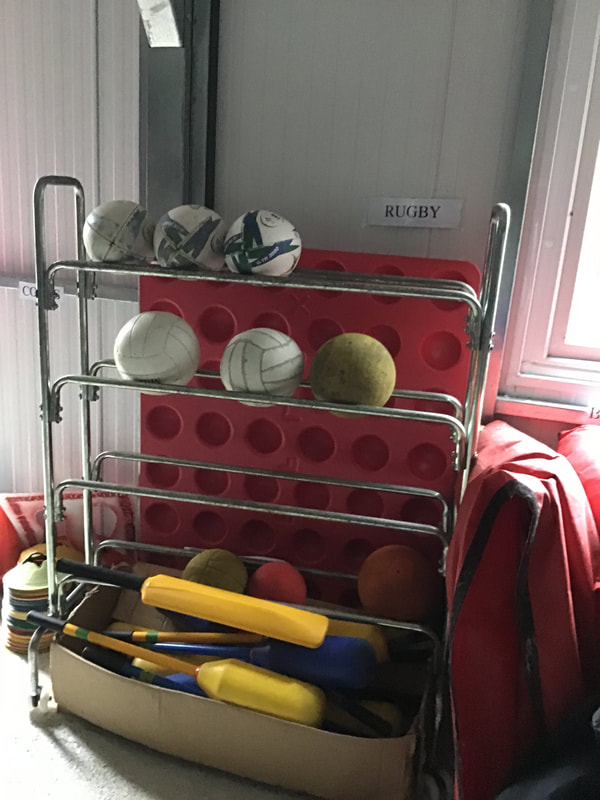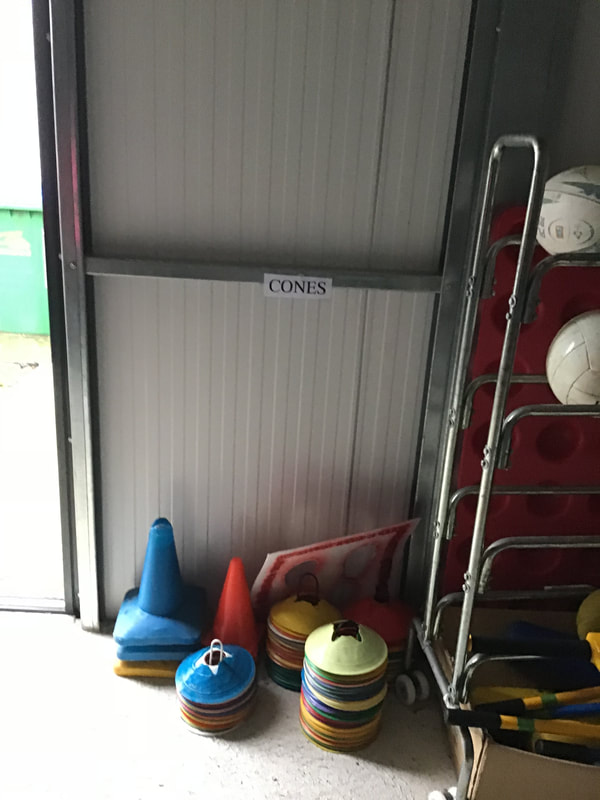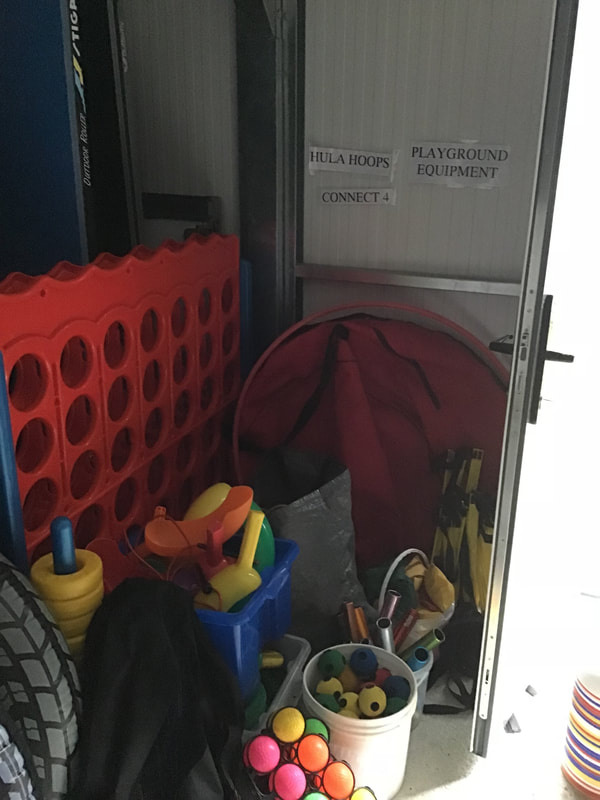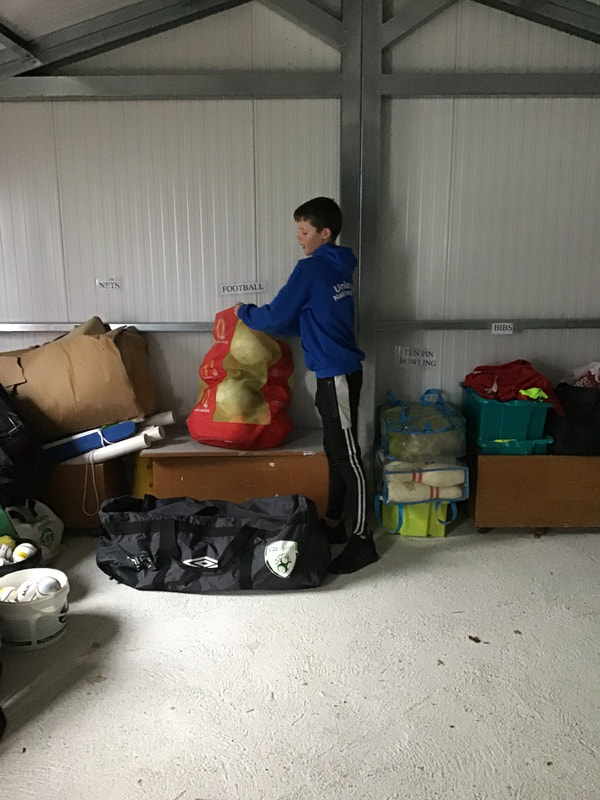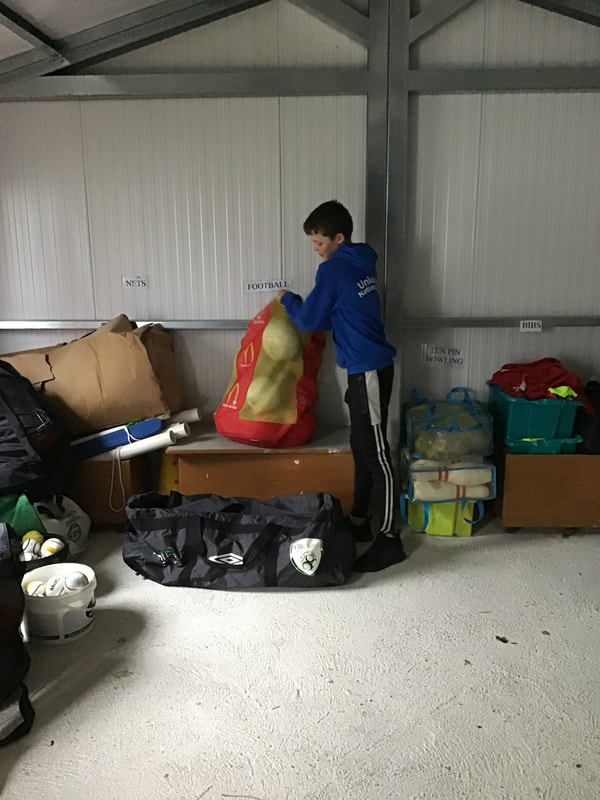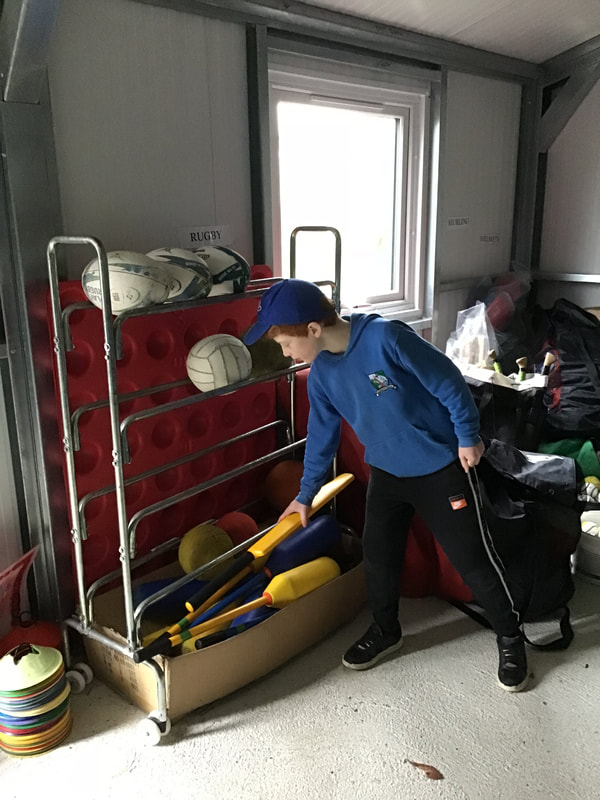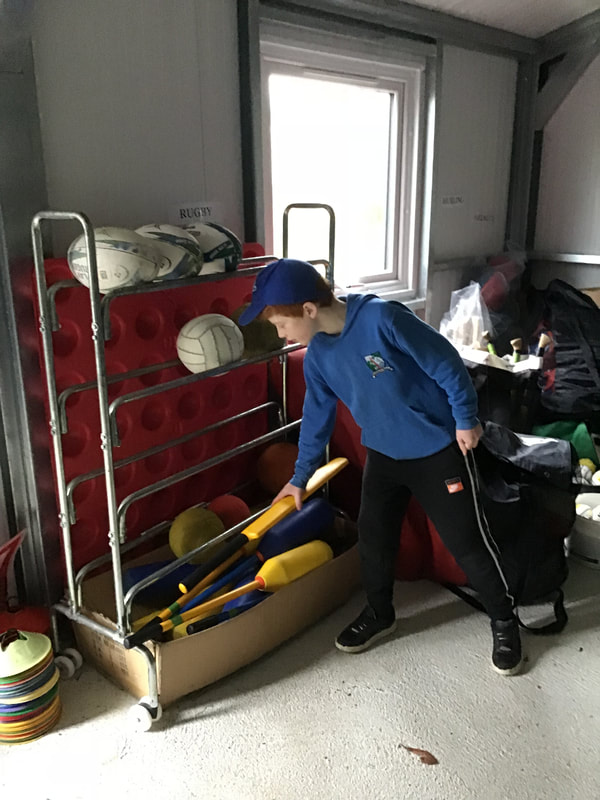Physical education
Union Hall National School has a diverse physical education curriculum.
We ensure all pupils participate in a minimum of 60 minutes of PE every week.
As we are limited in space and use of hall, due to Covid-19, we now factor in the weather and adjust the timetable to
accommodate this 60 minutes every week for every class.
We found if you offer various options of physical education, you will find something for everyone.
Physical education provides children with learning opportunities through the medium of movement and contributes to their overall development by helping them to lead full, active and healthy lives.
Below is our PE timetable, Monthly Strand timetable and tracksuit days
We ensure all pupils participate in a minimum of 60 minutes of PE every week.
As we are limited in space and use of hall, due to Covid-19, we now factor in the weather and adjust the timetable to
accommodate this 60 minutes every week for every class.
We found if you offer various options of physical education, you will find something for everyone.
Physical education provides children with learning opportunities through the medium of movement and contributes to their overall development by helping them to lead full, active and healthy lives.
Below is our PE timetable, Monthly Strand timetable and tracksuit days
Active Junior Infants September 2020
5th & 6th PE Basketball October 2020
Time Tables
PE Timetable 2021-2022
Standard PE Plan
Month Strand
September-October: Games
November-December: Games, Dance
January-February: Gymnastics, Athletics
March-April: Aquatics, Games
May-June: Games/Outdoor & Adventure, Dance, Aquatics (Sailing)
Tracksuit Days 2021-2022
Infants: Tuesday and Friday
1st & 2nd: Wednesday and Friday
3rd & 4th: Wednesday and Friday
5th & 6th: Tuesday and Friday
PE Timetable 2021-2022
Infants: Tuesday & Friday, 11.45 - 12.15
1st & 2nd: Wednesday, 1.30 - 2.30
3rd & 4th: Wednesday, 11.30 - 12.30
5th & 6th: Tuesday, 11.30 - 12.30
Standard PE Plan
Month Strand
September-October: Games
November-December: Games, Dance
January-February: Gymnastics, Athletics
March-April: Aquatics, Games
May-June: Games/Outdoor & Adventure, Dance, Aquatics (Sailing)
Tracksuit Days 2021-2022
Infants: Tuesday and Friday
1st & 2nd: Wednesday and Friday
3rd & 4th: Wednesday and Friday
5th & 6th: Tuesday and Friday
PE Timetable 2021-2022
Infants: Tuesday & Friday, 11.45 - 12.15
1st & 2nd: Wednesday, 1.30 - 2.30
3rd & 4th: Wednesday, 11.30 - 12.30
5th & 6th: Tuesday, 11.30 - 12.30
Physical Education Curriculum
The content of the physical education curriculum
The curriculum is divided into six strands:
Athletics, gymnastics, outdoor and adventure activities, dance, games, aquatics.
All classes are taught at least 5 different PE strands every year.
Due to Covid-19 our aquatics strand may not be possible this year, however we still aim to complete the 5 other strands.
Usually our swimming classes are timetabled for the end of term 3 in May or June.
Athletics
Every year, we at Union Hall National School organise trials for Cork City Sports within our school. We complete in the Cork City Sports day which is usually held in June. We also hold our own sports day every June where every child participates, and we include many different types of competitions from the egg and spoon race to relay.
Gymnastics
On a fundamental level, gymnastics improves physical health and athletic discipline.
Through consistent practice of the sport, children will build strength, improve flexibility, fine tune coordination, develop discipline and enhance self-esteem.
Gymnastics is a wonderful way to try something different and we found everyone in Union Hall
found something they liked while trying it.
Through consistent practice of the sport, children will build strength, improve flexibility, fine tune coordination, develop discipline and enhance self-esteem.
Gymnastics is a wonderful way to try something different and we found everyone in Union Hall
found something they liked while trying it.
Outdoor and Adventure Activities
The children enjoy trying many different types of outdoor activities, and we encourage this every year, especially for the individual classroom school tours. They have tried climbing walls, bouncy castles, Zorbing and outdoor camping in fifth and sixth, to mention a few.
Dance
We attend dance classes in our local arts centre in Skibbereen, and both boys and girls enjoyed the experience. The children were then able to incorporate some of the moves they learnt into a dance during our Christmas play.
Games
When it comes to physical education, our main aim, first and foremost, is that it must be enjoyable and part of that is playing games, and incorporating games and PE into the other fun things we do, like dressing up at Halloween.
,Aquatics
Every spring/summer term, the whole school attends swimming lessons in our local swimming pool in Dunmanway town. As the children live close to the sea, these lessons are put to good use in the summer months when the children visit our local beaches and try many different aquatic activities.
Swimming May 2019
Teachers Section
Please see below the link to the website provided by PDST in relation to physical education in primary schools.
Our teachers use this website to guide them with their delivery of the Primary PE Curriculum.
The website includes the PSSI plans which all teachers use, both individually and together, to ensure the delivery of the Primary PE Curriculum.
Our teachers work together at the start of the year to plan the whole school PE curriculum and meet throughout the year to give feedback and suggestions on how to improve or best modify the PE plans to ensure they are accessible by all pupils.
At the parent-teacher meetings, usually organised in mid to late November, teachers set aside part of the meeting to discuss and update parents on the progress of their child in PE. Teachers also are available to discuss each child's progress throughout the year at a time suitable to the parent should they wish for further information on their child's progress.
Also at the end of the school year, parents will receive feedback on the children's progress in PE on the school report card.
https://pdst.ie/physlit
Our teachers use this website to guide them with their delivery of the Primary PE Curriculum.
The website includes the PSSI plans which all teachers use, both individually and together, to ensure the delivery of the Primary PE Curriculum.
Our teachers work together at the start of the year to plan the whole school PE curriculum and meet throughout the year to give feedback and suggestions on how to improve or best modify the PE plans to ensure they are accessible by all pupils.
At the parent-teacher meetings, usually organised in mid to late November, teachers set aside part of the meeting to discuss and update parents on the progress of their child in PE. Teachers also are available to discuss each child's progress throughout the year at a time suitable to the parent should they wish for further information on their child's progress.
Also at the end of the school year, parents will receive feedback on the children's progress in PE on the school report card.
https://pdst.ie/physlit
CPD in PE
All of our teachers have completed CPD in Physical Literacy from 2017 to 2020.
'Move Well, Move Often' Plan
Stage 1
(All stages can be found on the website https://pdst.ie/physlit )
Two of our teachers attended the 'Move Well, Move Often' seminar in February 2020. This is an ongoing course and as it progresses the teachers in attendance will relay back the required information and share out the knowledge, ideas and resources amongst the other staff members.
On completion of the course, staff meet and prioritise different fundamental movement skills to focus on within the PE programme using the 'Move Well, Move Often' resources.
Below is the first stage of the 'Move Well, Move Often' resource available on the PDST website.
Your browser does not support viewing this document. Click here to download the document.
Focus Strand: Gymnastics
All teachers must work together to strengthen their delivery of a different PE strand every year.
Therefore at the start of this year (Sept 2019) our teachers decided to strengthen our delivery of our gymnastics strand.
New gym mats were purchased and put to good use by all classes.
Teachers followed the PSSI (Primary Schools' Sports Initiative) gymnastic lessons.
Therefore at the start of this year (Sept 2019) our teachers decided to strengthen our delivery of our gymnastics strand.
New gym mats were purchased and put to good use by all classes.
Teachers followed the PSSI (Primary Schools' Sports Initiative) gymnastic lessons.
Gymnastics in the hall
PAWS
We are working with Water Safety Ireland to teach our pupils how to be safe around water in the home, on the farm, pools, beaches and waterways.
Water Safety Ireland has created an educational resource for primary schools called PAWS (Primary Aquatics Water Safety). PAWS outlines life-saving guidelines for children of every age and is available digitally to every school in the country.
With beautiful illustrations, a wealth of tips and advice, and all sorts of interactive games and puzzles to reinforce lessons learned, PAWS incorporates all aspects of the physical education aquatics strand of the primary school curriculum.
The PAWS programme has been developed in partnership with The Educational Company of Ireland. Their platform is already used daily by many teachers all over the country.
Below is a link to PAWS under the Water Safety Ireland website which will give you all the information covered in the lesson .http://www.iws.ie/education/paws.2925.html
PAWS lessons in 3rd and 4th class this year:
Water Safety Ireland has created an educational resource for primary schools called PAWS (Primary Aquatics Water Safety). PAWS outlines life-saving guidelines for children of every age and is available digitally to every school in the country.
With beautiful illustrations, a wealth of tips and advice, and all sorts of interactive games and puzzles to reinforce lessons learned, PAWS incorporates all aspects of the physical education aquatics strand of the primary school curriculum.
The PAWS programme has been developed in partnership with The Educational Company of Ireland. Their platform is already used daily by many teachers all over the country.
Below is a link to PAWS under the Water Safety Ireland website which will give you all the information covered in the lesson .http://www.iws.ie/education/paws.2925.html
PAWS lessons in 3rd and 4th class this year:
Storage of PE Equipment
In September 2019 we purchased a new shed especially for our PE equipment.
Below are the images of our PE equipment which we stored in our hall prior to the purchase of our new shed.
We now have all equipment transferred to our new shed which is clearly labelled, well organised and easily accessible for the children.
In September 2019 we purchased a new shed especially for our PE equipment.
Below are the images of our PE equipment which we stored in our hall prior to the purchase of our new shed.
We now have all equipment transferred to our new shed which is clearly labelled, well organised and easily accessible for the children.
PE Equipment storage shed
PE Plan for Union Hall National School
This plan was reviewed in January 2020
Introductory Statement and Rationale
(a) Introductory Statement
The PE plan for Union Hall NS was formulated in consultation with the teachers and Board of Management.
(b) Rationale
Physical education provides children with learning opportunities through the medium of movement and contributes to their overall development by helping them to lead full, active and healthy lives. We aim to provide these learning opportunities to the children in our school to maximise active learning experiences and approaches to the benefit of each individual child.
Vision and Aims
(a) Vision
We seek to assist the children in our school in achieving their potential through the opportunities they receive to physically educate themselves through the strands of the PE curriculum and to promote physical activity through out the school.
(b) Aims
We endorse the aims of the Primary School Curriculum for PE
- To promote the physical, social, emotional and intellectual development of the child
- To develop positive personal qualities
- To help in the acquisition of an appropriate range of movement skills in a variety of contexts
- To promote understanding and knowledge of the various aspects of movement
- To develop an appreciation of movement and the use of the body as an instrument of expression and creativity
- To promote enjoyment of, and positive attitudes towards, physical activity and its contribution to lifelong health-related fitness, thus preparing the child for the active and purposeful use of leisure time.
The broad objectives of the PE curriculum have been considered.
Additional aims that relate to the context of our individual school:
Mainstream school – develop inclusive activities at all times in every lesson
1. Strands and strand units
- The strands/strand units/content objectives for the relevant class level(s) are found on the following pages:
- Infant classes pp. 16-23
- First and Second classes pp. 24-34
- Third and Fourth classes pp. 38-46
- Fifth and Sixth classes pp. 48-59
- Aquatics: Junior Infants-Sixth pp.62-64
- Teachers will choose a range of activities for all strands for each class. Where possible, children will have access to the following six strands each year – Athletics, Dance, Gymnastics, Games, Outdoor and Adventure Activities, and Aquatics.
- We will endeavour to create a PE rich environment in the school:
Suitable websites
Posters/photographs/newspaper cuttings
- We will ensure there is continuity and progression from class to class by:
- We will record the content covered at each level which will briefly detail the level of engagement with each strand (Cúntas Míosúil)
2. Approaches and methodologies
- We will use a combination of the following approaches:
- Direct teaching approach
- Guided discovery approach
- Integration
- Individual, pair, group and team play
- Station teaching
- Using a play area zoned to allow children to engage a variety of activities.
Structure of a PE lesson:
Warm Up
Main Activity – running, jumping, throwing, rolling, striking an object, kicking, playing small sided games, orienteering, dancing etc
This main activity will take place at individual, pair and small group levels
Station teaching will sometimes be used to teach a specific skill and to enable the children to experience a variety of activities in the PE lesson
We will sometimes divide our hall/play area into grids to allow for small group activity involving all children.
Cool Down
3. Assessment and record keeping
The School’s Assessment and Record Keeping Policies are available in the general file in the Principal's office.
The teachers in the school constantly assess the PE lessons delivered as we identify progress and difficulties.
- We will assess:
- Willingness to participate in activities
- Readiness to engage with a certain activity
- The level of competence of a child in carrying out an activity
- Interest in and attitude to activity
- Willingness to cooperate in individual, pair and group activities
- Our assessment tools are:
- Teacher observation
- Teacher-designed tasks
- Pupils assessing themselves and their partners.
- Assessment is used to provide information on individual children, assist the teacher in planning a programme and facilitates communication with other teachers, parents and other professionals.
- Assessment for learning to provide feedback to children, improve learning and inform practice.
- Assessment of learning which helps to identify the milestones children reach and the progress they make to report to parents, other teachers and the children themselves.
- Assessment as learning involves teaching the children how to self assess and peer assess.
- The assessment criteria used for each activity forms part of class and school planning.
4. Children with different needs
- Teachers will endeavour to support and ensure the participation of children with special needs by planning to include all children in PE activities. This will mean we have to focus on the abilities of each child. We will refer to the Draft Guidelines for Teachers of Students with General Learning Difficulties produced by the NCCA.
SAMPLE: POTENTIAL AREAS OF DIFFICULTY FOR STUDENTS WITH MILD GENERAL LEARNING DISABILITIES
Potential area of difficulty
Implications for learning
Possible strategies
• fitness levels
It may be necessary to set targets to improve fitness.
• include active warm ups and drills for skills practice
• vary activities in the lesson to include the use of gross motor skills; regular short periods of exercise daily; cooling down exercises and consultation with parents/guardians
• listening and responding
The student may have difficulty with short–term memory and concentration span.
• keep instruction simple and clear. Students repeat instruction.
• demonstration(s) of task; verbal analysis of task; student performs task; teacher affirms task
• move to new instruction regularly
• co-ordination and balance
The student may have difficulties in fine and
gross motor skills in all strand areas.
• teach suitable gait for skill, for example, throwing and catching a ball, jumping and landing, balancing.
• give good visual demonstrations
• reaffirm good examples and practices
• use additional equipment to suit the needs of the student, for example softer balls, larger target
• provide physical support to student in performing skill, for example, jumping
• spatial and body awareness
There may be safety issues for students engaging in movement exercises.
• provide suitable group arrangements; restrict area of movement; plan for the student to engage in follow the leader, and copying and contrasting exercises
• use specific body parts in exercises e.g make a shape with the upper part of the body
• left–right orientation
It may be necessary to include regular exercises with these movements.
• include warm-up exercises/stretches. Students mirror actions of peers or teacher: O’Grady says: Follow the leader
• include exercises with equipment using both sides of the body
• behaviour
This will:
• necessitate the smooth progression of lesson structure with clear instructions.
• establish routine format for class and the expectations of desired behaviours
• ensure that the student is suitably placed in the class for optimum learning
• check that the student is attending by reinforcing and questioning
• involve the student where possible in demonstration
• encourage the student and assign tasks opportunities for success
• social integration.
Keep appropriate balance between cooperative and competitive activities. Foster enjoyment of activities with others. Encourage individual student’s interest in particular aspects of the strands.
• group student(s) appropriately
• use co-operative fun activities regularly
• give encouragement and acknowledge good effort
• set appropriate skill development level commensurate with students’ ability level
• set reasonable targets for co-operative activities (individual and group).
We include children who may have physical disabilities by planning to include them in all PE activities and by adapting the activities as necessary.
- Children with exceptional ability/talent for PE will be encouraged and supported by acknowledging their talents and creating additional challenges for these children in the strands of the PE curriculum they excel in. These challenges will be based on the activity being pursued by the rest of the class. In addition, the children will be encouraged to maximise their talent by forging links with local clubs so the child(ren) can bring their talent to a higher level. The children with exceptional ability will, on occasion, be encouraged to assist their classmates in achieving proficiency in the activities they are undertaking.
All children will be encouraged to participate in all PE activities through the use of co-operative fun activities. We will also give encouragement and acknowledge good effort wherever possible. Our main aim is to set activities close to each child’s ability level but at the same time challenging them to improve their performance. Reasonable targets will be set for all children at individual, pair and small group levels.
5. Equality of participation and access
- In planning for PE we pay attention to the following areas in order to promote gender equity throughout the physical education curriculum.
- All children from infants to sixth class partake in at least 5 strands of the curriculum.
- We will provide equal access for all children to physical education equipment and facilities and the use of the playground during breaks will be incorporated as an integral part of the school’s programme i.e. one particular group or class will not be allowed unlimited access to larger yard areas.
- When grouping children for physical education the school will endeavour not to group children solely on the basis of gender whenever possible.
- As a staff we will help children to build positive attitudes towards all activities.
- We will take into account the needs of girls and boys when promoting the health related fitness of children.
- We will enter both boys and girls teams in inter-school competitions and where necessary (if we have insufficient numbers) we will take the opportunity to enter mixed teams.
- We will have an annual Sports day where the emphasis will be on partaking and sharing rather than winning. There will be no prizes for individual pupils.
- We have an annual Active Week incorporating a rang of different activities.
- Children are allowed to run during playground breaks.
- Our school provides two daily playground breaks and one timetabled movement break.
Due to the increased enrolment of children from other countries in Irish schools, it is vital to help these children integrate. P.E. provides great opportunities for this integration
- The Dance strand of the curriculum will be used to introduce dances from other cultures in the area of folk dance. Children from other countries will also appreciate the folk dances which are an integral part of our Irish culture.
- Large sporting events such as the Olympics, World Cup, Special Olympics etc will be used to look at the customs and sporting culture of some of the participating countries.
- Introduction of games from different countries i.e. boules, lacrosse to children in the school, yet at the same time acknowledging the special place that Gaelic Games hold in our culture. Gaelic Games should be given particular consideration as part of the Games programme
- Identify provision required, as and where necessary, for inclusion of children experiencing any form of disadvantage
- Every child will have access to all PE activities provided by the school and lack of financial resources on behalf of the child will not hinder their participation.
- “In line with Department of Education and Skills recommendations, it is the policy of S.N.Bhríde not to charge for in-school curricular activities.” However, when organising the aquatics strand, this school is unable to meet the cost of running an adequate aquatics programme. As a result, the B.O.M. has given permission to charge a nominal fee to each child. No child will be denied access to swimming lessons due to lack of financial resources and the School has made provision for such children to attend classes.
- It is also the policy of the school to charge for bus travel to away sporting events where necessary.
6. Linkage and integration
- Linkage and integration:
- Linkage can take place within physical education in that many activities transcend strands and are of benefit to the child irrespective of the strands or subjects being covered.
- Theme based activities will be used to support integration especially in the gymnastics strand where the language of movement can be developed in tandem with the practical activities under the theme of travelling. Further language development can take place under the theme of balance. Mathematical concepts in fifth and sixth class can be developed with the theme of symmetry and asymmetry in the PE class.
- Language:
- The effective use of ICT will create opportunities for pupils to discuss and talk about their own and others’ performance in PE.
- The effective use of questioning from the teacher will develop the vocabulary associated with PE. Allowing the children to analyse their own experiences will allow them understand and appreciate the activities of PE better and thus physically educate themselves in a more meaningful way – as opposed hing that just happens with time.
Organisational Planning:
7. Timetable
In this school all classes will normally have one hour of PE per week. All classes will attend swimming lessons during the year usually towards the end of the second term or the beginning of the third term.
Pupils in the older classes partake in three days of sailing in Glandore each June.
Below is the standardised yearly timetable used for all classes.
The Games, Outdoor and Adventure activities and Athletics strands are done at a time when it is hoped the weather will be fine and will allow the PE lessons to be based outside.
Month Strand
September-October
Games
November-December
Games, Dance
January-February
Gymnastics, Athletics
March-April
Games, Aquatics
May-June
Dance, Games/Outdoor & Adventure, Aquatics (Sailing)
Wet Breaks Policy
It is school policy that on the days when children are unable to play outdoors, that every classroom teacher will incorporate an extended classroom-based physical activity break into the school day.
Teachers in this school will follow similar plans depending on weather and local events. Discretionary curriculum time affords the teacher and the school the flexibility to accommodate different school needs and circumstances and to provide for the differing aptitudes and abilities of the children it serves. It can be allocated, at the teacher’s and at the school’s discretion, to any of the six curriculum areas – PE being one of the curricular areas.
This school will use its discretionary time for the 6 weeks of the pool-based activities undertaken to facilitate the Aquatics programme in the school - in order to cover the time travelling to and from the pool.
- The school will facilitate Active School Week whereby the discretionary curriculum time for the period in question may be used to promote physical activity for all children in the school encompassing as many of the strands of the PE curriculum as possible.
8. Code of ethics
- If coaches from a local or a national sporting organisation are invited into the school to work with the children as part of their PE class, they will be used to support the class teacher in the implementation of some of the PE curriculum strands in the school. They will not replace the class teacher and ultimate responsibility for the class lies with the class teacher. The class teacher will in turn support the coach on certain occasions when this will lead to maximum benefit for the children in the class.
- Any coaches working in the school context will be expected to adhere to the Code of Ethics of Irish Sport, produced by the Irish Sports Council. Adults interacting with children in sport are in a position of trust and influence. They should always ensure that they treat children with integrity and respect and that the self-esteem of children is enhanced. All adult actions in sport should be guided by what is best for the child and carried out in the context of respectful and open relationships. If there is a suspected case of child abuse in the class (even if it becomes apparent in the context of a PE class), all teachers will adhere to the Department of Education and Science Child Protection Guidelines to be used with the ‘Children First Guidelines’ produced for all personnel working with children.
9. Extra Curricular Activities
- Sciath na Scol
- Cork County Primary Schools’ Sports.
- Sailing Competition
- National Bike Week
- Active School Initiative
Note: The extra-curricular programme that involves competitive activities should always reflect the aims and objectives of the PE curriculum.
10. PE equipment and ICT
- Our school has a detailed inventory of equipment and resources available for PE. This list is compiled by the post holder for PE and is checked and updated at the beginning of each school year.
- It is stored in a storage cabin the key of which is in the office and it is the responsibility of each class teacher to ensure that all equipment is returned to the cabin after each lesson. Any breakages have to be reported to the post holder as soon as possible. The post holder will inspect the room once a month. Each teacher will be given a copy of the equipment list and will be informed of any changes to it throughout the year.
- The post holder in consultation with the Principal and the staff will have the responsibility to purchase the PE equipment for the school and to apply for equipment from different organisations who give free equipment to schools.
- The BOM, on the recommendation of the Principal (informed by the PE post-holder) will sanction a budget for updating of PE equipment annually - subject to funds being available. At present, there is no dedicated PE grant. The Principal will also request additional funds from the Parents Association.
ICT
- In order to ensure a PE rich environment, part of the school information board will be dedicated to P.E. where school and local events will be advertised. The school’s camera will be used to record PE activities. The display of these pictures on the notice board will give an opportunity to children to see themselves and others in action.
- Activities will be recorded from time to time to enable children view their performance of certain activities in the PE classroom.
- All internet usage follows the strict guidelines laid down by the school in our Internet Usage Policy. This covers the use of appropriate software and the access to safe websites. Teachers will visit websites prior to children being referred to them and much of the websites will be visited by the teacher and shown to the children through our interactive whiteboards.
Issues identified as being health and safety issues in a PE context include warm-up at the start of all physical activity, practising in confined spaces, use of equipment, accidents, supervision, activities involving the whole school yard, procedures for dealing with accidents …etc
It is important to acknowledge from the beginning that while the following procedures will eliminate unnecessary hazards they cannot remove all risks due to the physical nature of the subject. When engaging children in PE all members of staff will ensure that the following safety aspects will be taken into consideration
- All children have to wear suitable footwear and clothing during a PE lesson. Children will not be allowed wear any jewellery during a PE lesson.
- The equipment used will be suitable in size, weight and design to the age, strength and ability of the child and be of good quality and in good repair.
- Children will be taught how to lift and carry all PE equipment safely
- In all PE lessons, children will warm up and cool down. This develops good practice and the children will return to class relaxed after activity.
- Should an accident occur in the PE lesson we will follow the procedures outlined for other accidents in our Health and Safety policy.
- Running activities will not finish at a wall or pole
- Best practice is safe practice and the teacher should ensure that the children understand that the rules and procedures are there for their safety.
- We will endeavour to have an appropriate surface for the activities in the PE lesson
- Children will not be forced to do activities they are not physically or mentally ready for.
There will be at least one person on staff with a current First Aid qualification and the BOM will fund the course fees. The First Aid Kit is kept in the kitchen and is restocked regularly with items only recommended by First Aid personnel. A second portable kit is also available when children are participating in PE outside the school grounds. Any medical conditions of children are detailed by their parents/guardians on the school enrolment form.
12. Individual teachers’ planning and reporting
The whole school plan and the curriculum documents for PE will lay out the structure and format that teachers will follow in addition to the aims and objectives of the primary school curriculum. While these documents are vital for planning, it is important that teachers do not rely on them exclusively as it is necessary to adapt the PE plan to your own class level and experience. It is vital that all teachers plan individually while at the same time ensuring that their class plans co-ordinate and feed into the overall school plan.
Teachers will plan based on the strands as outlined on the yearly timetable in Section 7 and can explore the use of themes in their planning especially in Gymnastics where themes such as balance and travel can provide a great stimulus for lessons.
The Cuntas Míosúil will be very relevant in reviewing and developing the school plan for the following years. Once the individual cuntas míosuil have been evaluated it should be obvious to the staff which elements of the curriculum were being implemented.
13. Staff development
Any staff members attending extra courses will be encouraged to share their new ideas with the rest of the staff. Like all other areas of the curriculum, time is allocated at each staff meeting for regular updates to all staff on the different areas and initiatives that are taking place inside and outside school
Teachers can benefit from their interaction with the local sports coaches e.g. G.A.A. who provide coaching in the locality. Any coaches invited into the school will be there to support the teacher with a view to promoting good practice.
14. Parental involvement
We will ask all parents to support their children to participate in all strands of the PE curriculum. We will ask parents with recognised areas of expertise in the area of PE and/or Sport to support us in our efforts if their talents will be of benefit. We will outline the benefits of the PE curriculum and stress the difference between PE and sport and encourage them to become involved in our Active School Week or any initiative we will organise. We will encourage sporting endeavour at all times.
In order to implement some strands of PE we may need the assistance of parents in a supervisory capacity, transporting children to sporting events and helping with supervision. As with any curricular plan in the school, it is available to parents.
15. Community links
We are very much aware of the school’s role in the community and we are also conscious of the fact that the expertise of people in the community is an invaluable resource to any school.
We will also make reference to famous sports people from our community and invite suitable people into the school to talk to the children as long as the content is in keeping with the sentiments of the curriculum. If a local team or individual has had a notable victory, they will be invited in to the school to share the victory with the local children.
The community has also been involved in fundraising for PE equipment for the school.
Teachers’ preparation will be based on this plan and the planning of individual teachers will feed into the overall school plan. Therefore, the school plan needs to be reviewed on a regular basis.
Teachers will also be more acquainted with the content and methodologies outlined in the plan. There should be clear progression as children move from class to class.
Success criteria
- The importance of enjoyment and play
- Maximum participation by all children
- The development of skills and understanding
- A balance between competitive and non-competitive activities
- A balance between contact and non-contact activities
- Providing opportunities for achievement for each child
- Providing activities equally suitable for boys and girls.
Implementation
Roles and Responsibilities
The PE post holder will co-ordinate the progress of the plan, encourage and accept feedback on its implementation and report to staff on findings
The plan will be monitored and evaluated at the end of each school year and we can reflect meaningfully on how well the PE programme has been taught and received in the school. The following will be consulted in appraising the PE plan
- Teachers
- Pupils
- Parents
- Post holders
- BOM
Ratification and Communication
The reviewed PE plan was ratified by the Board of Management _21/01/2020
and is available on the school website www.unionhallns.com.
Signed:__________________________________
Dated:_______________________________
Review
The plan will be reviewed in Term 2 - 2023
